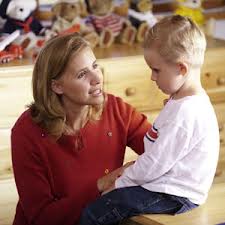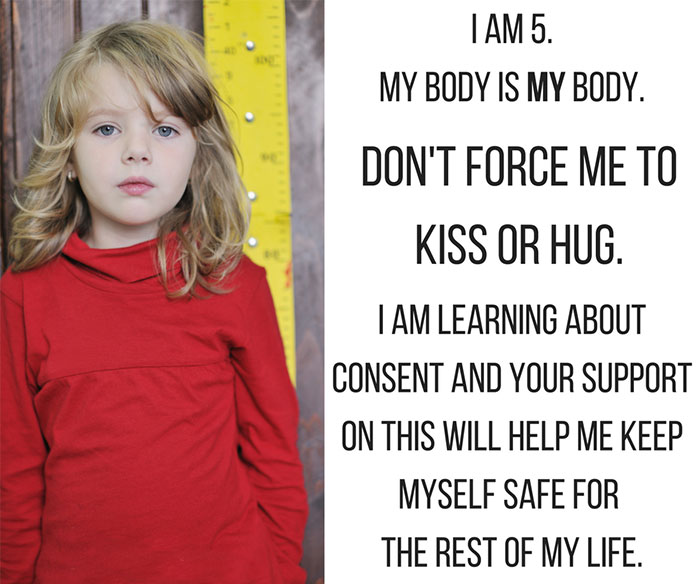 Originally published in The Natural Parent Magazine in April 2011
Originally published in The Natural Parent Magazine in April 2011
For most families who practice Attachment Parenting, the parents aim to overall meet their baby’s needs on demand. Parents can feel confident in the knowing that warm consistent responsiveness to needs fosters emotional safety and security.
For many parents however, things start to become a bit more tricky as their baby turns to toddler and beyond, it becomes clear that the child’s wants can be very different from their needs. Little ones who are out of balance because they’ve had a busy overstimulating day become grumpy and start demanding more excitement; “take me to the park now!!” despite the fact that what they need is to slow down and rest.
Parents need to say no and their child doesn’t like it! But how to be assertive without being aggressive?
For many parents, using bribes, threats and punishments doesn’t sit well with them, they know there must be a better alternative, often parents find these methods to be ineffective or that they deteriorate the mutual respect and listening between parent and child.
Be assured, discipline without punishment is not only possible, but effectively fosters mutual respect, co-operation, respectful conflict resolution and problem solving skills. What’s more, peaceful parenting strategies equip children with valuable skills for life!
Here’s a quick example that highlights the value of meeting needs when conflicts arise:
Ann came to me for a parenting consultation because she felt at her wits end with her two older children (ages 4 and 6) constantly squabbling.
Ann explained that her children were being defiant, not listening, not responding to her requests and they kept bickering! She explained how she would calmly sit the children down and ask them to think about how they can play more nicely together. They would try and protest and lay blame on each other. She would re-focus them on thinking about what they could change. They would both think and make constructive suggestions like “we should share nicely”, “we shouldn’t fight”, “we should take turns”. Yet, inevitably five minutes later, it all started again, next would come the dramatic protests as she put each of them separately into time out. She explained that she had tried bribes, threats, time out, she felt she’d tried everything!
Like all families, Ann’s have their struggles and worries. Since the birth of their third child, there’s been a lot of tension between Ann and her husband; regularly disagreeing with each other over little misunderstandings related to day to day activities, as well as financial pressures and some health worries.
I invited Ann to take a minute to remember being a little girl and remember how she felt with the adults in her life when there were tensions in the home. Did she expect to be heard and understood? Did she fear judgments? How did she feel in her body as she remembered such times. I then invited; “now play with your imagination and see if you can imagine how it might feel for your little girl (the older one who Ann finds the hardest) when things are tense with your husband? “
Ann: “I can imagine she feels really frustrated, confused and really sad, she probably feels like shouting at us to stop, to just be nice to each other”. Ann noted that it was similar to how she feels when she just wants the kids to stop fighting. Ann could feel how her children’s stress is affecting their play, how they’re both taking their irritable, frustrated feelings out on each other.
Change happens at the emotional level. Taking these insights into account, Ann recognised that asking her children to just play nicely or imposing consequences on them only addressed the behaviour, but not the feelings and unmet needs driving the behaviour. We explored some strategies for better meeting the children’s unmet needs that are driving their aggression, like more fun activities as a whole family, carving out time to spend a least a little bit of quality time with each child each day, better listening on Ann’s part when they each need to express their frustrations and also some strategies to better identify and meet the needs for greater connection and communication in her marriage.
Ann has reported back her amazement at how well the new approaches have worked. She has developed more understanding, compassion and tools for meeting everyone’s needs, including her own!
Fostering the warm connection with your child is the best preventative measure. Practicing active listening when setting a limit or when children argue, plus using empathy, mediation and facilitating problem solving lead to greater harmony in the family system. When conflicts arise, if the parent can slow down the communication, this helps children feel more safe and secure, it lowers rather than raises their stress levels. Children can better access their logical thinking when they feel emotionally safe. They need more time than adults to process and express their thoughts, feelings and needs. When parents set limits for their child, it helps greatly if the parent can remain calm, express their expectations clearly and positively and maintain the emotional connection. Not only do we not need to become grumpy and aggressive when expressing limits, it’s when children are most in need of reassurance that their parent is caring about their feelings.
Stress and behaviour are interconnected. The peaceful parenting strategies support parents to view their children’s behaviour within the context of the whole family system. We know from neuroscience that negative behaviour is directly proportional to levels of stress in the brain. Worries, stresses, pressures in the family can be thick in the air and affect the child’s sense of security. Off track behaviour always relates to unmet needs. Dr. Aletha Solter, psychologist and author of four parenting books explains that unmet needs fit in to three main categories;
1. The child has an unmet current need, e.g. food, drink, attention, sleep, stimulation, exploration, expression etc.
2. The child has insufficient information, e.g. the rules are different in auntie’s house or church.
3. The child is harbouring pent-up feelings: No matter how loving parents are, children can experience frights and upsets daily. If painful feelings don’t have an outlet through crying, playing, laughing, talking, trembling or raging, they build up and can lead of lots of out of balance behaviour. Children need loving support as they release stress through crying or harmless venting.
Understanding that off track behaviour relates to unmet needs, can help you feel confident that identifying and meeting your child’s basic needs promotes their optimal emotional, mental and social development. You can confidently say no to children’s unreasonable wants, like going to the park at 8pm!, but still meet their deeper needs to be warmly listened to, accepted and cared for in their grumpy disappointed state.
If you need support in your journey of adopting peaceful parenting strategies in your family, contact Genevieve about some one on one parent coaching or holistic counselling or both combined.
You might also like to read:
Expressing limits assertively but non-aggressively
The benefits of mediating your children’s conflict
Children need Emotional Safety
Can you maintain healthy boundaries? Are you modelling healthy boundaries?
Dealing with anger in the family and in yourself How can I become less impatient and more patient?
When does no mean no?









Thanks for the amazing article, but I have a few questions…
My little sister is 5 years old and sometimes on the smallest things she lashes out at me even though I show her love and care, and I play with her. Sometimes she even scratches me. Sometimes even when I am forced to play with her I’m nice with her, but sometimes I also need a break. She know this, but sometimes knows that my mom is busy and my dad is working and so she takes advantage of this and cry’s and yells if I don’t do things her way, but I don’t be want her to do the same things in school because then no one plays with her but she doesn’t listen and cry and scream and my mom is really overprotective of her I don’t know why, and so I just get in huge trouble and embarrassment for making her cry or making her mad. I don’t know what to do… she never did these things while a toddler because I always taught her not to spit or hit or scream and get angry and she used to be so sweet and nice but now she’s turning into a monster. She is clingy to my very busy mom, but my mom tries her best to spend time with her but she’s always so tired and busy. What should I do?
Do you have advice for parents of 17 almost 18 year olds that still have aggressive and destruction to property?
My teen son is in residential treatment and due to unmet needs I feel, he still has behavior from when He was in early trade school. He has limited speech, he can talk but at low volume.
Hi LaJuan maybe read my article Aggression why children lash out and what to do. Think about his lashout out in terms of stress and frustration, what helps him lower and better manage his frustration, what increases his stress and frustration that can be minimised, what are some of the healthy outlets for his frustration, what helps him feel more secure (which lowers stress and frustration), what insecurities can be minimized?
[…] their agony. We keep them stuck in the place of hoping and pleading and resenting. The sooner they come to terms with the limit and express their “tears of futility” (as Gordon Neufeld terms it), the sooner they empty out […]